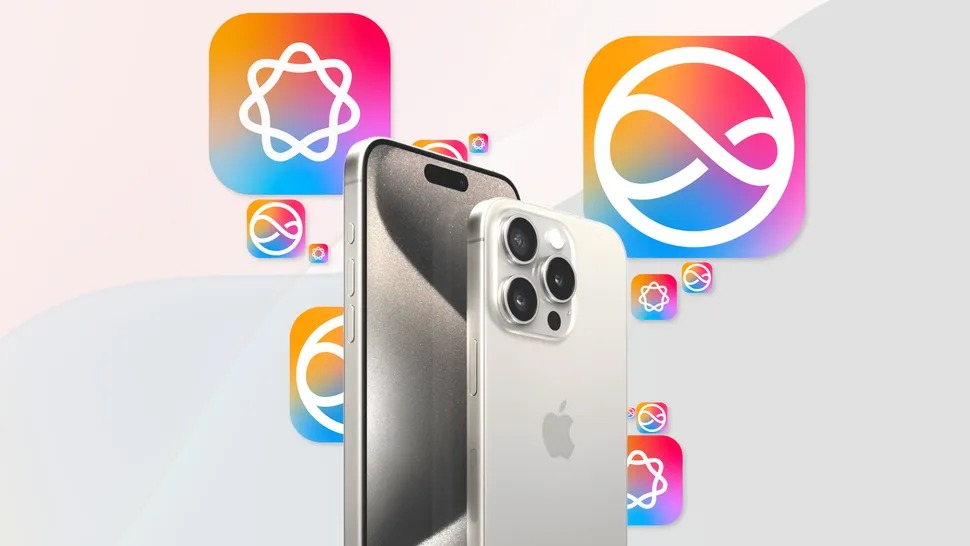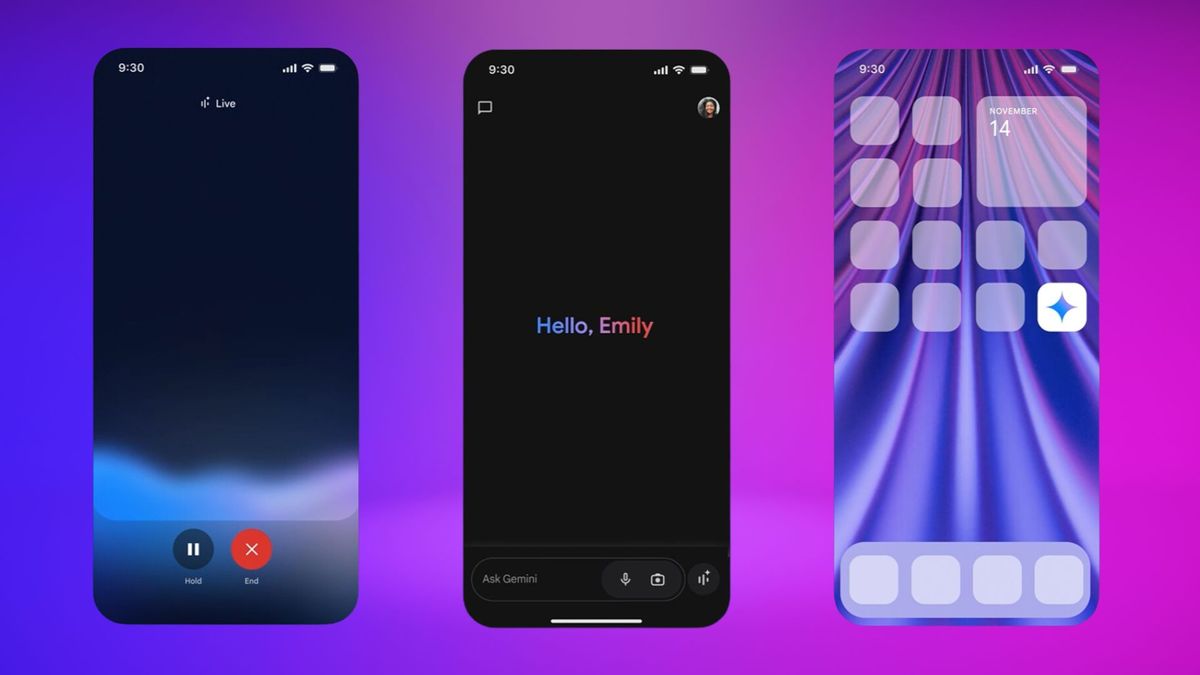Did the iPhone just become the best device for AI? Maybe, but not because of Apple Intelligence.
This past week Google officially launched the Gemini app on iOS, allowing iPhone users to get the complete Gemini AI experience. The app is launching just weeks after Apple released the first version of its new Apple Intelligence AI platform, which also included a ChatGPT integration.
This means the iPhone now has access to all of the three biggest AI platforms… well, sort of. Here’s what iPhone users should know about the new Gemini app, how it compares to Apple Intelligence, and why the iPhone could be the best device for AI now.
Google brings Gemini app to iPhone
The Gemini app is now available for free on the App Store, although it is only compatible with iPhones at launch (sorry, iPad users). It includes the full suite of Gemini features such as text and image generation, live chat, study aid tools, image search, assistant features, and more. It’s worth noting that you may need a Google Gemini Advanced subscription to access certain features.
All that’s required to download the Gemini app is iOS 16 or above (and adequate storage, of course). That includes all iPhone models starting with the iPhone 8 and later, plus the iPhone SE 2nd and 3rd generation.
This is important to note since very few iPhones are compatible with Apple Intelligence right now. Only the iPhone 15 Pro/Pro Max, iPhone 16/16 Plus, and iPhone 16 Pro/Pro Max can access Apple Intelligence as of late 2024. That’s a far smaller list of compatible devices compared with those that can download the new Google Gemini app.
This opens new options for iPhone users who want to tap into AI. If you can’t access Apple Intelligence, you now have a competitive new alternative. On the other hand, if you can access Apple Intelligence, you might now be wondering if it’s still the best AI tool for your phone.
Apple Intelligence vs Google Gemini app
Apple Intelligence and Google Gemini are both AI platforms that use large language models to generate text and images and comprehend verbal, text, and visual input from users. Both have some similar features, such as text and image generation, assistant features, and writing aid tools. However, there are some major differences iPhone users should know.
First, it’s important to keep in mind that Apple Intelligence is still in its early stages. Google Gemini has been out for longer (previously under the name “Bard”). As a result, it is a much more fleshed-out AI platform right now. Apple Intelligence will eventually have most of the same features, but Apple is planning to slowly roll them out over the next year, so you may be in for a long wait.
The main advantage of waiting it out for Apple Intelligence is privacy. Apple Intelligence is only compatible with specific iPhones because it runs mainly on-device, meaning it doesn’t send all of your data to the cloud to process AI tasks. Gemini is a cloud-based AI platform, so be aware that Google will most likely save and utilize data from your Gemini interactions in some capacity.
In contrast, Apple emphasized early on that it would not use iPhone users’ personal data to train Apple Intelligence. If any data does need to go to the cloud for processing, it is completely anonymized, preserving users’ privacy. If data security is important to you, Apple Intelligence may be the better AI platform if it’s compatible with your iPhone.
Is the iPhone the best device for AI now?

The launch of Apple Intelligence coupled with the new Gemini app has quickly made the iPhone arguably the best device for AI, perhaps second only to a MacBook. At the very least, the iPhone 15 Pro/Pro Max and iPhone 16 line-up are now the best phones for AI since they have access to the most AI algorithms.
We predicted early this year that apps would become the best way to experience AI, rather than dedicated devices. This has largely panned out, especially on the iPhone. That’s partly due to the sheer reach the iPhone has thanks to its massive user base. iPhones make up five out of the top ten bestselling smartphones in the world right now.
So, if a developer wants to get their AI platform to a large number of people as efficiently as possible, launching an iPhone app is the obvious strategy. Of course, that might not be good news if you’re an Android user. However, if you’re intrigued by the explosion in AI development this year and want to have access to the most algorithms possible, it might be time to buy an iPhone.

